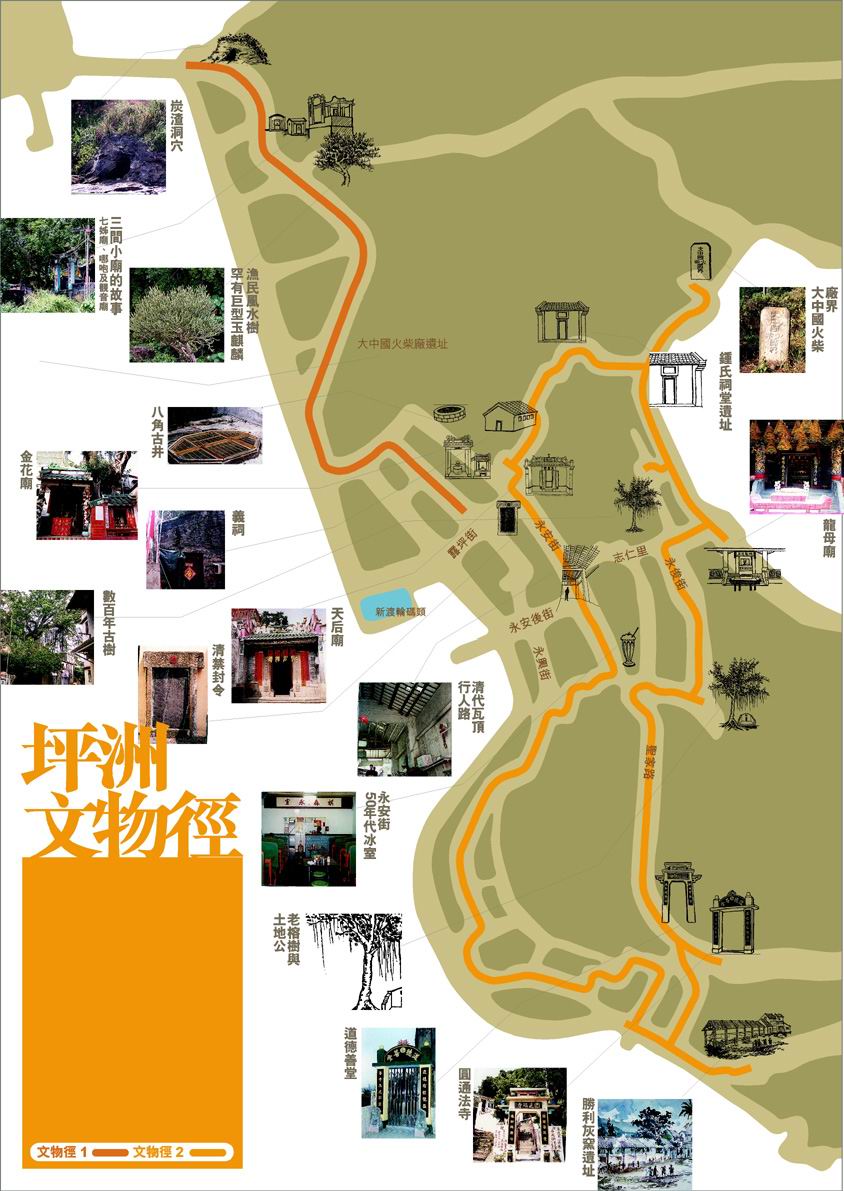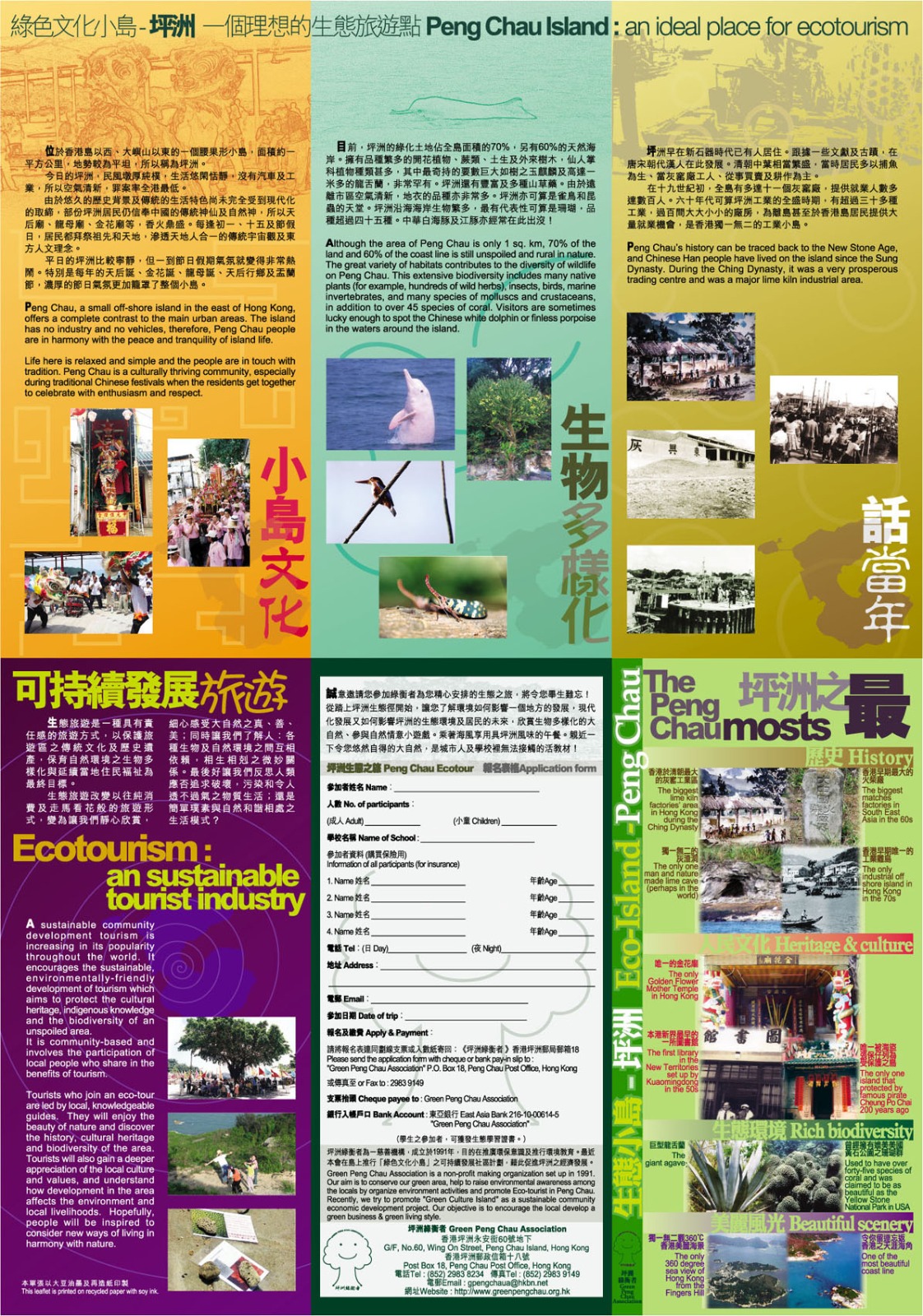The Green Culture Island Project
What is the "Green Culture Island" Project? It is a sustainable community development project that features initiatives such as ecotourism, organic farming and a green marketplace, and that advocates waste reduction, use of renewable energy, green consumerism and a green life-style. We will focus on: natural and cultural heritage conservation; awareness education; and capacity building among the local people. The project will be divided into three phases:
Phase I:
(1.1) Ecotourism
Peng Chau has a very long historical background; the traditional way of living has been conserved by the indigenous residents. Together with the rich biodiversity on the island, this creates the potential for the island to develop as an ecotourism destination.
(1.2) Ecotourism Education Centre
In the 21 century, ecotourism has gained popularity in both developing and developed countries as a tool for sustainable economic development, replacing the sometimes irresponsible mass tourism market, which has not only created social inequality and destruction of the natural environment but has also damaged economic development in the long run. Setting up an Ecotourism Education Centre can help Hong Kong people understand the nature of ecotourism and build a firm foundation for further development in this field.
(1.3) Community Organic Farming Campaign
With the aim of creating job opportunities for ex-farmers, organic food distributors and Peng Chau residents, the GPCA set up community-based organic farms by making use of abandoned farmlands. As an initiative to attract visitors to Peng Chau, the "Sunday Farmers" programme has been introduced, in which micro-plots are leased to city-dwellers to provide a source of enjoyment and green education.(1.4) Green Market
The traditional market place not only can stimulate local economic development but also create a meeting point for community members and visitors. The atmosphere is different from shopping in a high-rise arcade, offering more personal interaction. This market would take place on Saturdays and Sundays.
Phase II:
(2.1) Island waste reduction campaign
(2.2) Eco-surveying Peng Chau's biodiversity
(2.3) Renewable energy study
(2.4) Protecting the antiquities and monuments on Peng Chau
Phase III:
(3.1) Ecotourism information centre
(3.2) Peng Chau history museum.


